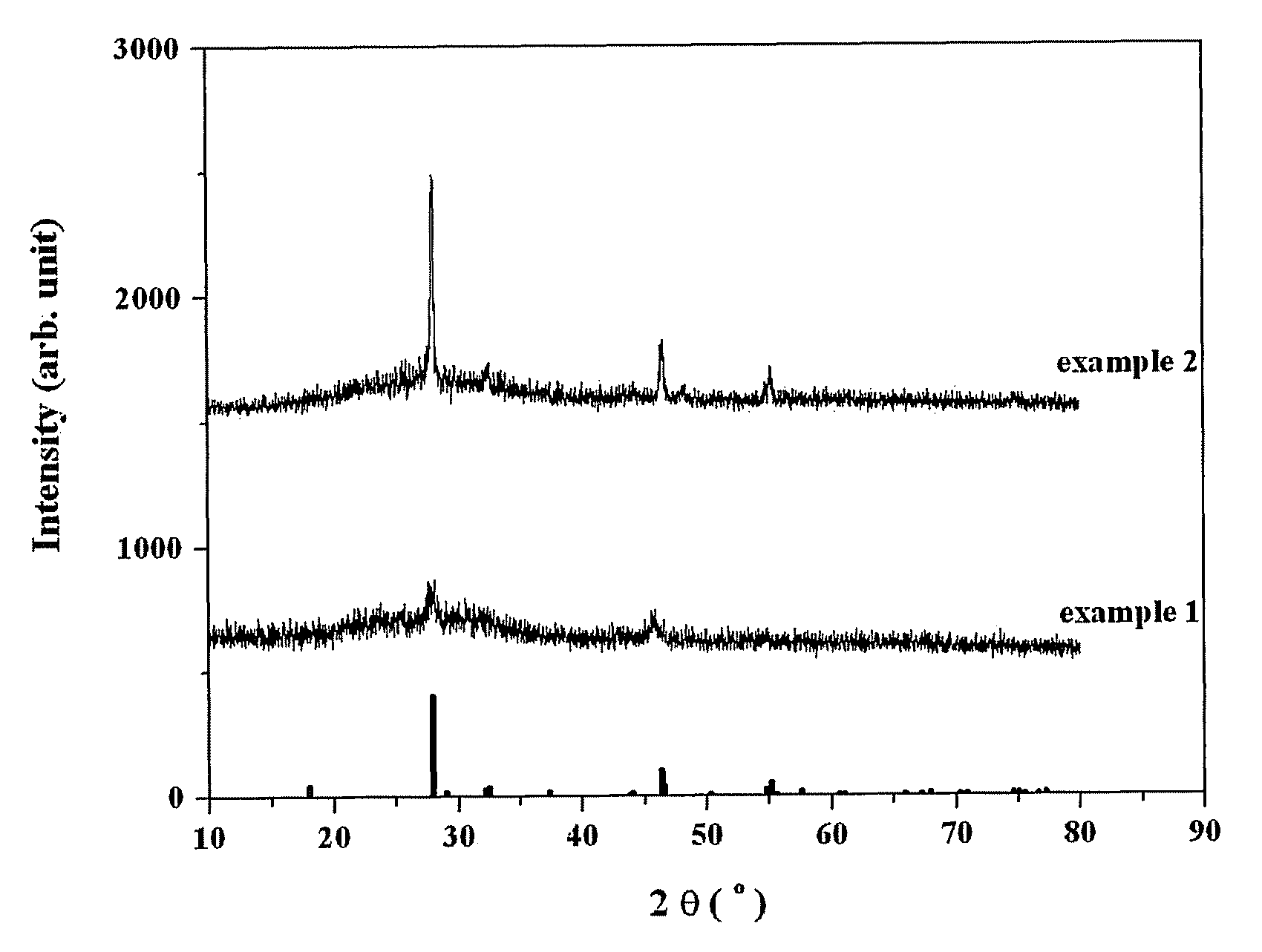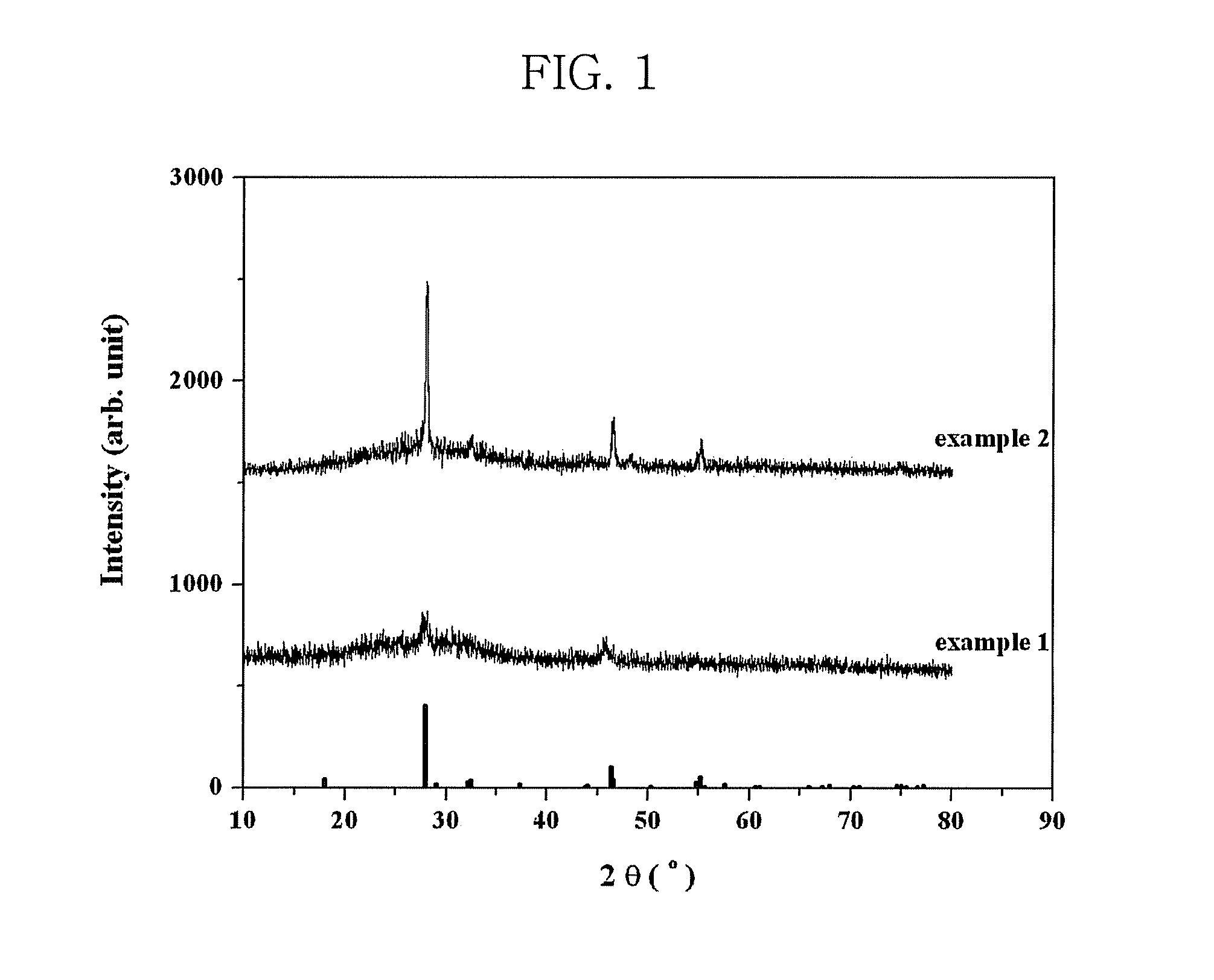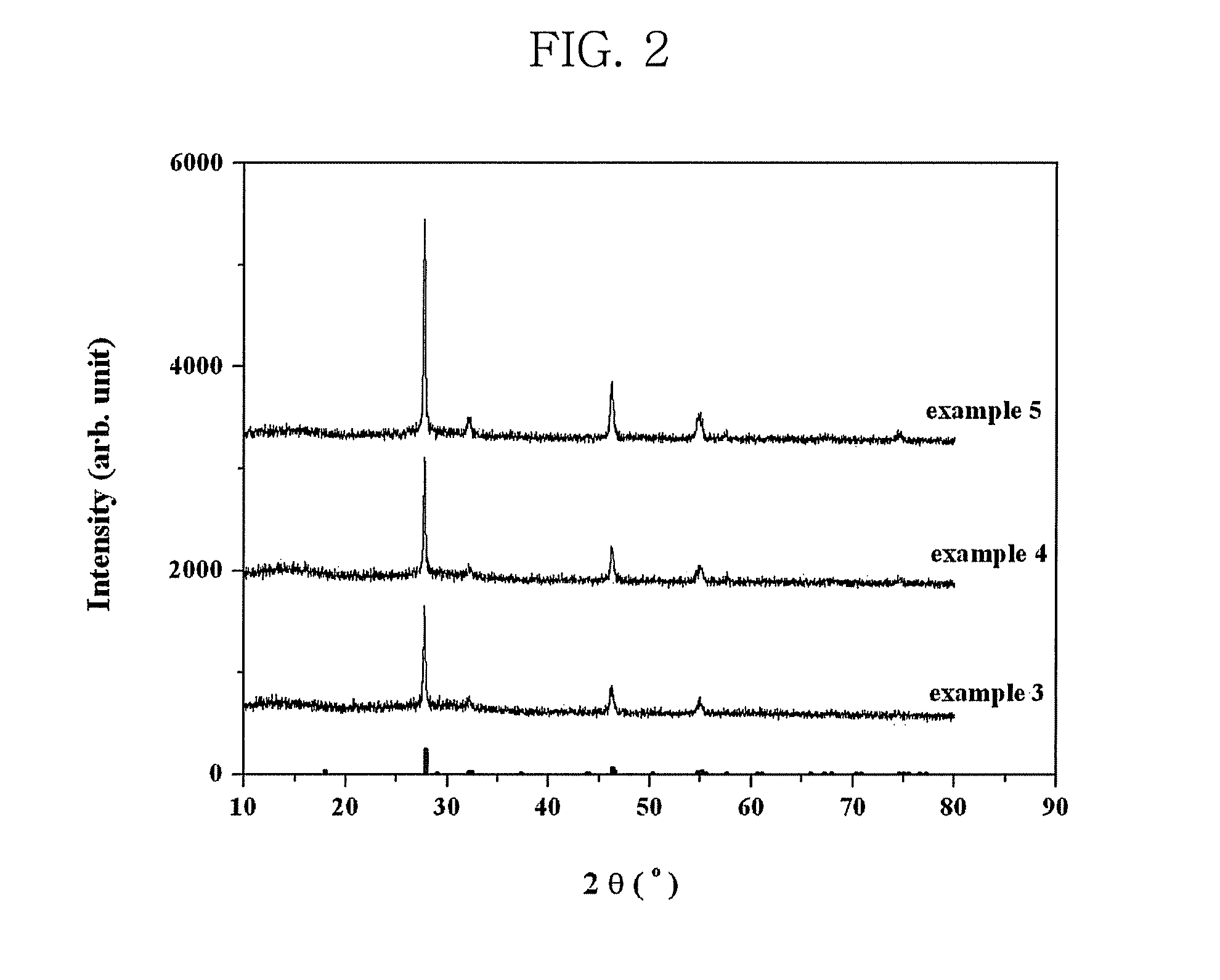Method for fabricating CuInS2 thin film by metal organic chemical vapor deposition, CuInS2 thin film fabricated by the same and method for fabricating In2S3 thin film therefrom
a technology of metal organic chemical vapor deposition and cuins2 thin film, which is applied in the direction of chemical vapor deposition coating, coating, semiconductor devices, etc., can solve the problems of limited reduction of material costs, complex chemical structure and commercially successful technology of thin film solar cells has not yet been developed
- Summary
- Abstract
- Description
- Claims
- Application Information
AI Technical Summary
Benefits of technology
Problems solved by technology
Method used
Image
Examples
example 1
Fabrication of CuInS2 Thin Film (A-CIS-1) Under Argon Atmosphere
[0073]Step 1: Fabrication of Copper Thin Film Under Argon Atmosphere
[0074]The copper ethylbutyrylacetate precursor prepared in Preparative Example 1 was recrystallized using a common technique. A washed clean substrate was fixed in deposition equipment. Prior to the deposition, the inside of a reactor was repeatedly cleaned with argon (Ar) as a carrier gas, and was stood under vacuum for one hour or more. As a result, residues such as oxygen and water, which are in danger of being incorporated in a thin film and becoming impurities therein, were removed from the inwalls of the reactor. Then, the copper ethylbutyrylacetate precursor was put in an evaporator equipped with a bubbler. The copper ethylbutyrylacetate precursor was deposited on a glass substrate under an argon (Ar) atmosphere introduced from an argon (Ar) gas supplier at a bubbler temperature of 120° C., a transporting tube temperature of 140° C., which is an ...
example 2
Fabrication of CuInS2 Thin Film (A-CIS-2) Under Argon Atmosphere
[0078]A CuInS2 thin film (A-CIS-2) was fabricated in the same manner as Example 1 except that the deposition of the CuInS2 thin film in the step 2 was carried out for 300 minutes.
example 3
Fabrication of CuInS2 Thin Film (V-CIS-1) Under Vacuum
[0079]Step 1: Fabrication of Copper Thin Film Under Vacuum
[0080]The copper thin film was fabricated in the same manner as the step 1 of Example 1 except that the copper ethylbutyrylacetate precursor was deposited on a glass substrate in the absence of a carrier gas under vacuum at a bubbler temperature of 80° C. to 120° C., a transporting tube temperature of 140° C., and a substrate temperature of 310° C. In the case where the deposition is carried out under vacuum at 350° C. or higher, there is a risk that copper oxide creates on the copper thin film. For this reason, the substrate temperature was maintained to 310° C. The deposition was carried out at a pressure of 1×10−3 torr for 3 hours.
[0081]Step 2: Fabrication of CuInS2 Thin Film Under Vacuum
[0082]A CuInS2 thin film was fabricated in the same manner as Example 1 except that the deposition of the CuInS2 thin film in the step 2 of Example 1 was carried out in the absence of a...
PUM
| Property | Measurement | Unit |
|---|---|---|
| thickness | aaaaa | aaaaa |
| temperature | aaaaa | aaaaa |
| temperature | aaaaa | aaaaa |
Abstract
Description
Claims
Application Information
 Login to View More
Login to View More - R&D
- Intellectual Property
- Life Sciences
- Materials
- Tech Scout
- Unparalleled Data Quality
- Higher Quality Content
- 60% Fewer Hallucinations
Browse by: Latest US Patents, China's latest patents, Technical Efficacy Thesaurus, Application Domain, Technology Topic, Popular Technical Reports.
© 2025 PatSnap. All rights reserved.Legal|Privacy policy|Modern Slavery Act Transparency Statement|Sitemap|About US| Contact US: help@patsnap.com



